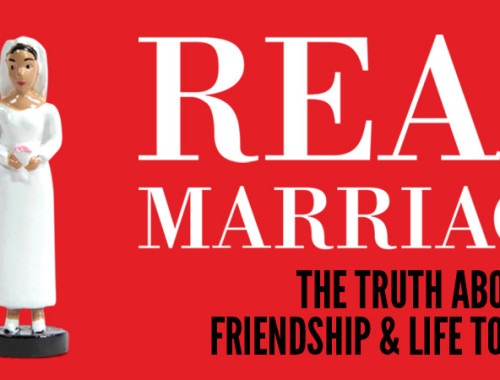Plot summary:
- Michael gives in to “God,” goes back to Pair-a-Dice for Angel.
- He discovers that she’s been beaten.
- Marries her while she’s nearly unconscious and delirious.
- Then he takes her back to the farm, where she recuperates.
- Angel tries to learn how to cook and lay a fire, but fails.
- She tries to seduce him, but he refuses.
***
I’m going to skip most of chapter six, which is mostly just Francine getting Michael back to Pair-a-Dice and the Palace to “get” Angel, where he finds her beaten and nearly unconscious. This firms up his belief that he’s been ordered by God to take her away, but he decides they have to get married before they leave town.
Right now I’m wondering why on earth Francine thinks they have to get married right then. The next few chapters reveals that he’s not intending to have sex with her until she’s not doing it as a “chore,” so there’s no motivation to marry her for that reason. Everyone knows she’s a prostitute, so it’s not to “protect her reputation” (like what frequently happens in other Christian romance novels). So why marry her right this instant, when it’s absolutely clear that she’s in no state to consent to being married and he knows that she wants nothing to do with him?
I don’t want to be so cynical to assume that Francine has these two get married at this point so that Angel is trapped in a marriage she doesn’t want, but there’s no other narrative reason I can see that makes sense. It’s possible she has them get married so that she doesn’t offend the delicate sensibilities of the modern conservative evangelical reader, but as far as story telling goes this is pretty horrible. It’s especially horrible considering the fact that laws of coverture where still in place. By marrying her, knowing that if she knew what was going on she never would have even said “why not?” (note there: she doesn’t say “yes,” and Michael is such an abominable monster where that is good enough for him), he now actually, literally, legally owns a woman he knows doesn’t want to be married to him.
And that’s how this whole situation starts.
There’s one significant issue being woven into these chapters that needs to be highlighted. At several points, Francine gives us something like this:
Angel couldn’t tell whether her sarcasm had gotten to him or not. It occurred to her belatedly that she might anger him and this wasn’t the best time to do so. She swallowed more soup and tried not to show her fear. (105)
and this:
What did he want from her? And why did she sense he was more dangerous than all the other men she had ever known? (110)
Angel’s backstory has made it clear that she’s experienced a lifetime of abuse, and people like me see Angel’s reactions to Michael’s every facial expression and vocal tone as hypervigilance, but frustratingly that’s not an interpretation we can take for granted in Redeeming Love. People like Francine aren’t entirely ignorant about what some of the consequences of abuse might be, it’s just that they look at something like hypervigilance and see bitterness instead. In this story, the reader “understands” that Michael is nothing like the abusive men Angel’s experienced. We’re supposed to take him at his word when he says he’ll never hurt her, that he loves her. Instead, we’re supposed to look at Angel’s mental commentary as a sign that she is bitter, and her own understanding of the situation isn’t to be trusted. She’s over-reacting.
The reality is that the opposite of this is true. In my experience, many Christians, especially those who ascribe to “nouthetic” or “biblical” counseling, take Francine’s point of view: trauma can result in bitterness, and that bitterness can poison a victim’s entire way of thinking … but they couldn’t be more wrong. In reality, victims are usually more capable of spotting abuse than people who haven’t been traumatized. Couple this over-writing of how victimhood is typically experienced with the fact that this section is called “Defiant” and she starts these chapters with quotations like “I am dying of thirst by the side of a fountain,” it’s clear that the reader is supposed to see Angel as stubborn, bitter, and inherently untrustworthy as a narrator.
What makes it worse is that Michael is doing things that are abusive.
“By the way. My name isn’t Mara. It’s Angel. …”
“The name Mara comes from the Bible,” he said, “It’s in the book of Ruth.”
“And being a Bible-reading man, you figure Angel is too good a name for me.”
“Good’s got nothing to do with it. Angel isn’t your real name.”
“Angel is who I am.”
His face hardened. “Angel was a prostitute in Pair-a-Dice, and she doesn’t exist anymore.” (105)
One of the first things an abuser has to do is erase their victim’s innate sense of personhood and their right to their own sense of self. They intentionally strip their victim of their own identity, and replace it with what they want their victim to be.
Then this happens:
“Look,” she said tightly, “I want to start getting up and about on my own. With something on.”
“I’ll provide what you need when you need it.”
“I need it now.” (113)
He does give her clothes to wear in this scene, but it’s brutally clear that he did it because he decided she needed them, not because she said she needed them. Another thing abusers have to do is make sure their victims are dependent on them. Sometimes this takes the form of financial abuse, sometimes they make their victims feel that they’re incapable and incompetent, but it’s all about making sure they can’t leave you. This particular scene is troubling because it’s one of the ones that connects Michael’s character to God’s: a common Christian concept is that God provides us exactly what we need when They decide we need it, and not a second earlier.
Oh, and then this:
Michael studied her with patience. She was small and weak but possesed and iron will. It shone from her defiant blue eyes and the rigid way she was holding herself. She thought she had enough to overcome him. She was wrong. He was doing God’s will, and he had plans of his own, plans that kept growing, but he had said all he was going to say for a while. Let her think on it.
“You’re right,” he said. “I don’t own you, but you’re not running away from this.”
He’s saying he doesn’t own her, but he does feel entitled to her. He explains his “plans” in a bit– additions to the house, watching their children grow up– but at this moment there’s something missing from his statement: she’s not running away because he won’t let her. If you’ve read Redeeming Love before, you know that the implied threat there is ultimately carried out.
This is what makes me say that Michael is an abuser: his overwhelming sense of entitlement. That is the single biggest problem that all abusers share. Universally, abusers feel entitled to their victim. They believe that they have the absolute right to marry a woman who’s been beaten into delirium and rename her and threaten her and tell her she’s going to have his kids while she is vocally objecting the entire time. Can you even picture a man who you barely know sitting across from you on a coffee date telling you that you’re going to marry him and have his children and oh, by the way, you keep saying you want to leave but I’m not going to let you?
The fact that Francine and a vast majority of the people who read Redeeming Love think that Michael is an excellent stand-in for God is detestable and horrifying.




